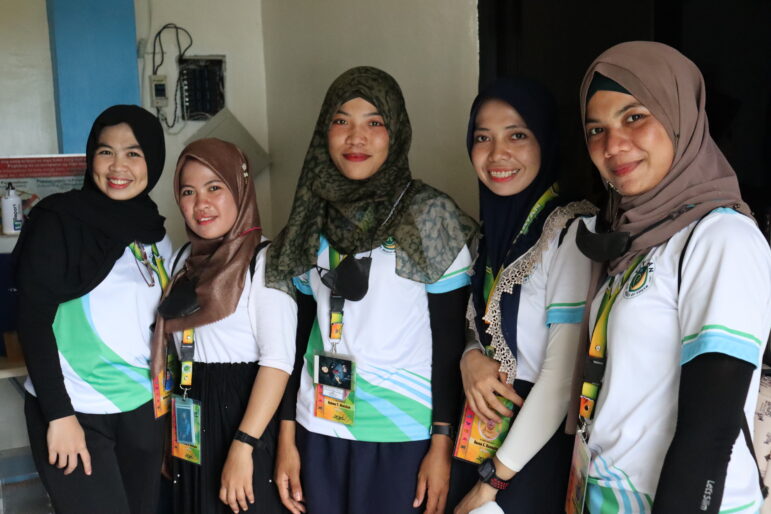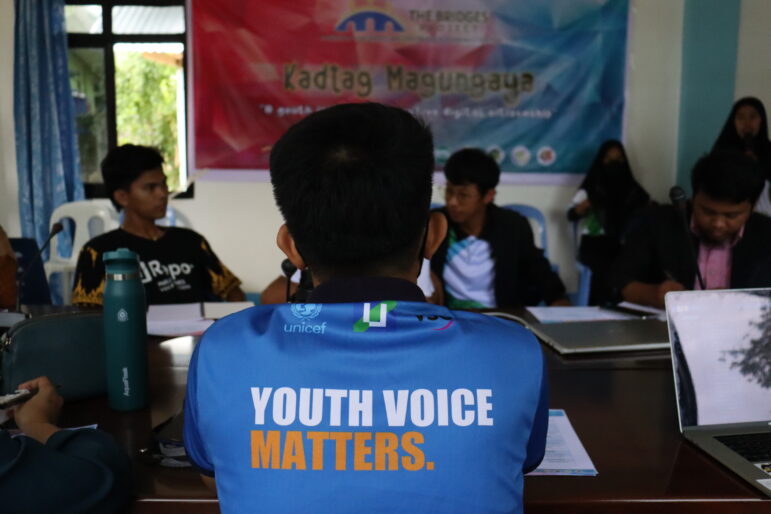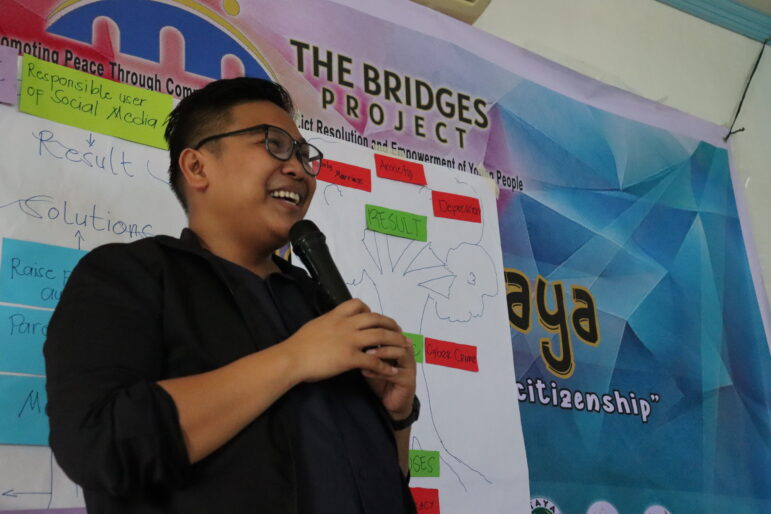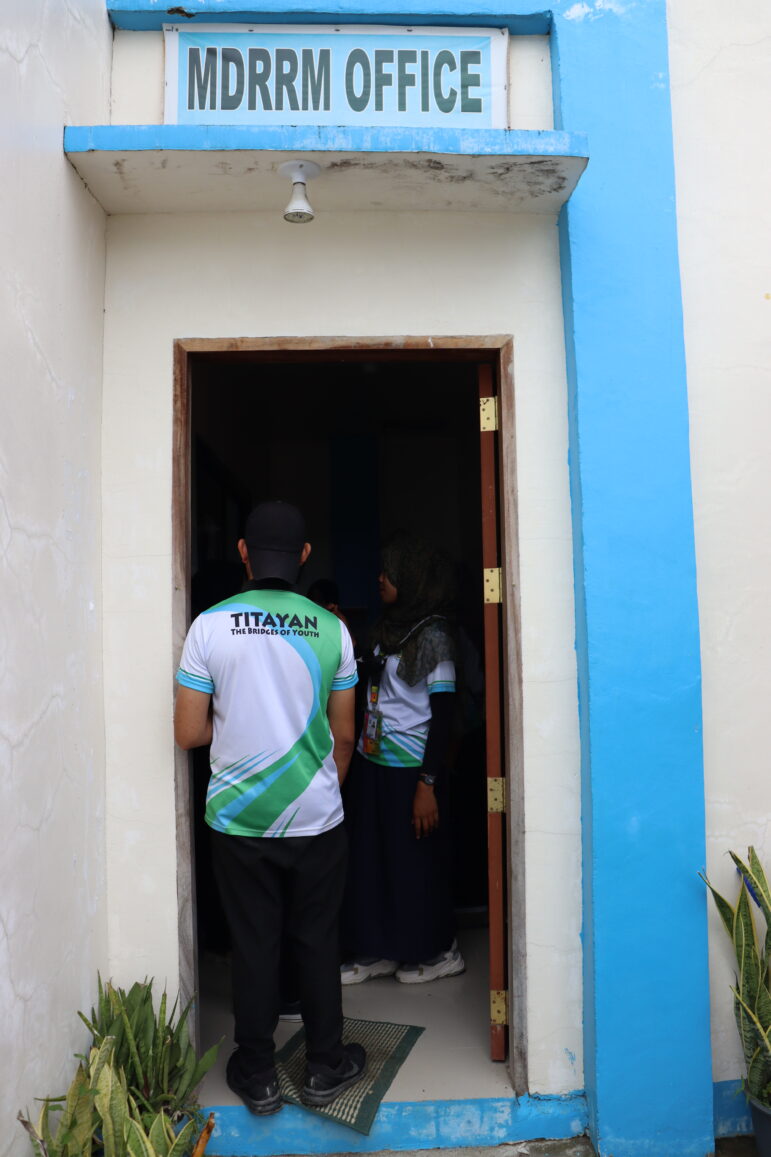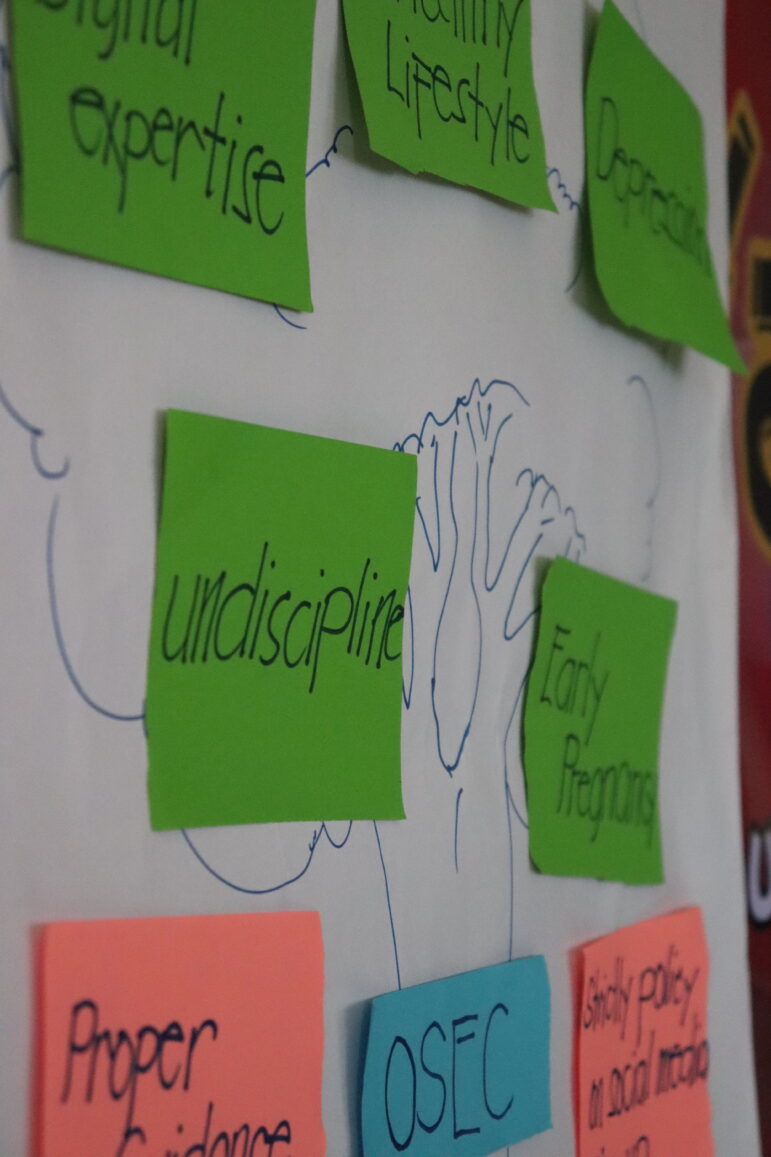Bridging Responsible Digital Usage in Today’s Digital Age
By Denise Rafaeli Cadorniga
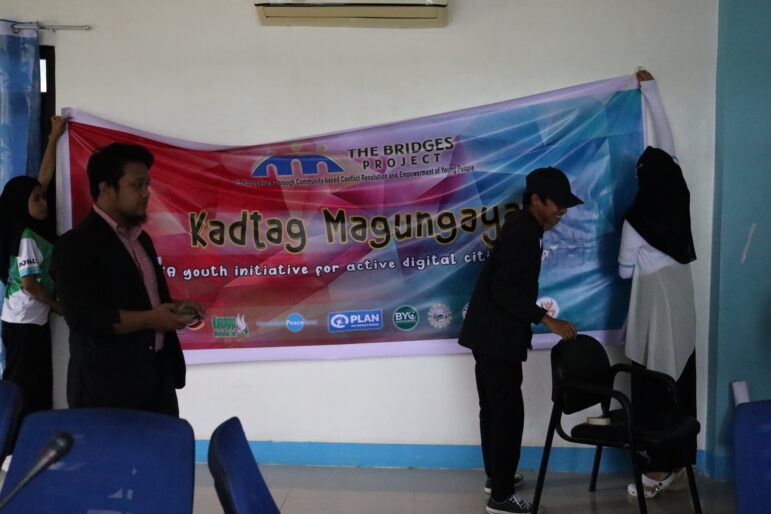
The digital age has brought immense opportunities for connection and learning but also a host of challenges, particularly for vulnerable communities. Online sexual exploitation of children and cyber violence remain pervasive threats, necessitating urgent action to safeguard digital spaces. In Maguindanao, two of our youth-led partner organizations, Titayan and CABCEP, are at the forefront of addressing these challenges through innovative community-driven programs.
For Dimple Salazar, a 27-year-old young Muslima, growing up in Datu Salibo, Maguindanao meant navigating between the acutely different worlds of everyday toil and the increasingly interconnected global populace of the internet. As we become more digitally connected than ever, online sexual crimes against children are being perpetrated. Factors such as widespread poverty, changes in guardianship, language barriers, and social norms reinforcing secrecy and victim-blaming contribute to the negative effects on youth well-being and relationships. Fortunately, communities are taking steps to address this growing problem.
Building Resilience
Titayan, which means "bridge" in Maguindanaon, is a coalition of youth leaders that provides training to its officers and youth members to develop strong personal, professional, and technical competence. Titayan aspires to be the "bridge" for youth, especially out-of-school youths, in empowerment and education. Similarly, CABCEP (Council of Active Bangsamoro for Community Educational Progress) focuses on fostering creativity and building economic potential among local youth. It is a nonpartisan and nonprofit youth organization that encourages Ulama (Islamic scholars) and professionals to work together for balanced community education.
Through this partnership, the organizations recently launched a series of workshops called "Kadtag Magungaya," designed to enhance awareness of digital citizenship and equip participants with tools to navigate the online world safely. This initiative introduced topics on cyber safety, addressing issues such as online sexual exploitation of children and online violence. Participants aged 16 to 53 learned essential skills to tackle 21st-century digital crimes, influencing sustainable policies and programs on cyber violence and digital safety.
Discovering a Digital World of Safety
Participants not only gained theoretical knowledge but also practical skills to combat online risks. Nash Dunding, a Bangsamoro Youth Commission Commissioner (BYC), remarked:
"Here in BYC, we are very proud of Titayan and CABCEP for their numerous initiatives and activities. You are effectively addressing important issues that need youth representation. This mechanism and engagement are proof of progress. Without these efforts, our context would not evolve. Let’s continue this work and be part of the solution by finding where we fit in the process.
“Here in BYC, we are very proud (of Titayan and CABCEP) sa nakikita naming napakaraming pagpupulong at patimpalak. Nakikipagsabayan kayo sa mga issues na kailangan i-represent at iba pa. Ibig sabihin, effective yuong ating mechanism at engagement. Without that, ay hindi gagalaw ang konteksto natin. Ituloy natin ito. Padayon lang!"
The program went beyond simply sharing knowledge, emphasizing dialogue and continuous learning as essential catalysts for meaningful change. This approach deeply resonated with participants.
"Two most important things in advocacy in youth empowerment and youth engagement are the conversation like this and appreciating the process. We must be part of the solution, and to be part of the solution, we need to find ourselves where we are in the process," Nash continued.
Addressing the awareness gap has the potential to impact communities far beyond the local area. The workshop tackled online grooming, sextortion, and other digital risks. Over 60 participants were equipped with knowledge about protecting children’s privacy, reducing exposure to intrusion, and mitigating risks.
Dimple Salazar, a member of Titayan, shared:
"We have been informed about digital citizenship that’s why we feel the need to spread this information that has been happening in the digital world, especially with teenagers today. There has been a lot of issues within our communities that linked with digital citizenship including viral nudity and pornography, early child marriage, and OSEC. They need to be aware here. We want our youth not to cause and bring anymore cases of violence, and we’ve done all of this with the help of NP."
“Na-aware na kami ngayon (sa digital citizenship) kaya dapat ipalaganap din natin ito. Lalo na sa mga teenagers na marami palang nangyayari sa digital world. Marami rin kasing issues dito na nangyayari sa amin. Kaya para ma-aware ang iba at para hindi na nila gawin ang mga nangyari (viral nudity and pornography, early child marriage, and OSEC) dito. Gusto nating hindi na tayo maka-dagdag sa cases na iyon at dahil sa pondo ng NP nagawa namin ito."
Titayan and CABCEP believe that transforming education is one of the best tools for improving the lives of Maguindanaon children and developing their communities. This marks a new era of community responsibility in making the digital world safer for children.
As the digital landscape evolves, so too must strategies for safety and inclusivity. Initiatives like "Kadtag Magungaya" showcase the transformative power of community-driven solutions. By giving youth more tools to shape their digital futures, Titayan and CABCEP are addressing threats like OSEC and cyber violence while fostering a culture of proactive digital citizenship.
* * *
Titayan: Bridges of Youth and members of the Council of Active Bangsamoro for Community Educational Progress (CABCEP) are participants of the "BRIDGES: Promoting Peace through Community-based Conflict Resolution and Empowerment of Young People" project, funded by Plan International through the German Federal Foreign Office (GFFO) in partnership with Nonviolent Peaceforce and Magungaya Mindanao, Inc.
BRIDGES is implemented in Maguindanao to strengthen communities’ capacities to resolve conflict through nonviolent, people-centered approaches and provide socioeconomic empowerment programs for disengaged and at-risk youth.

